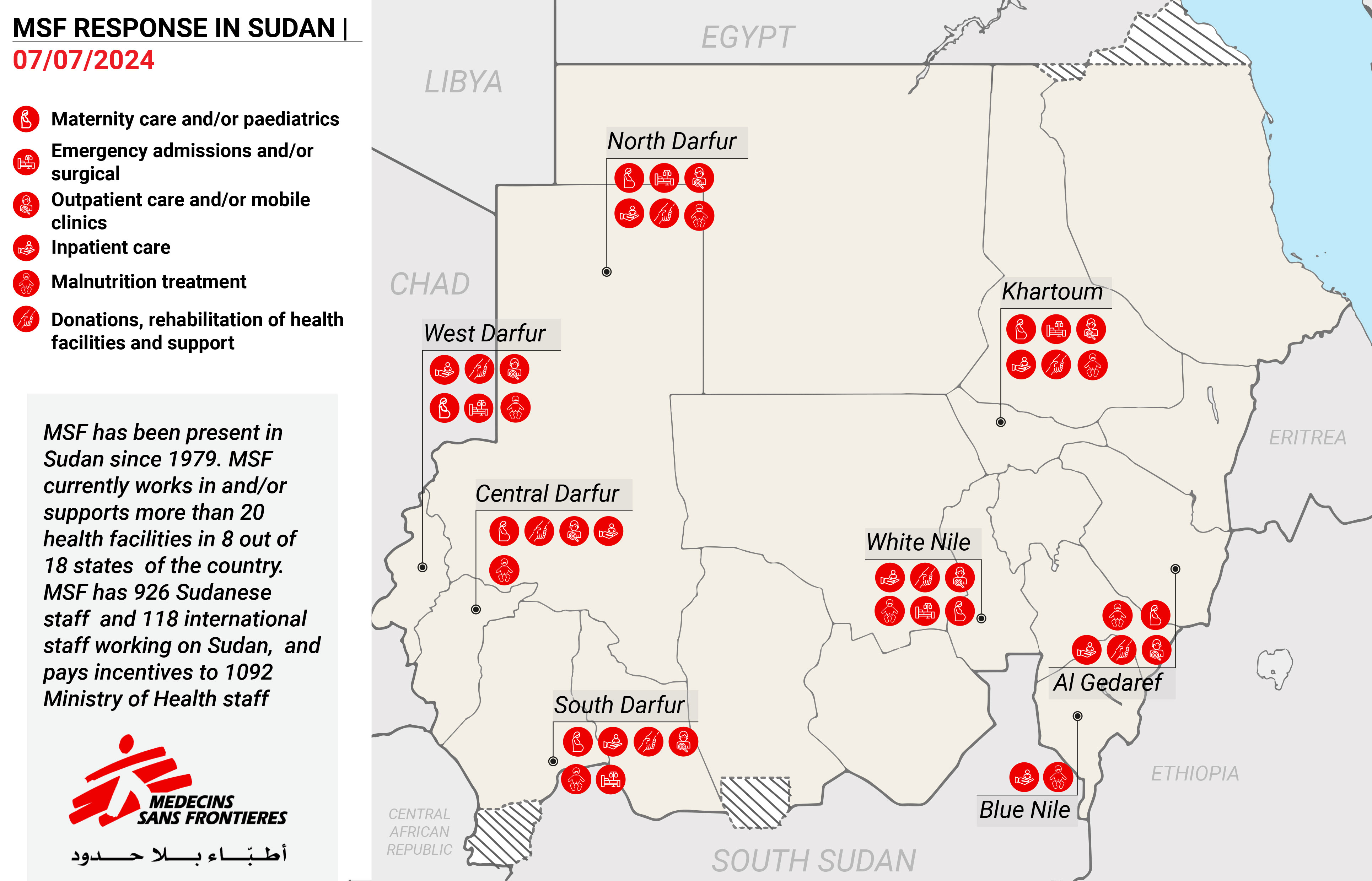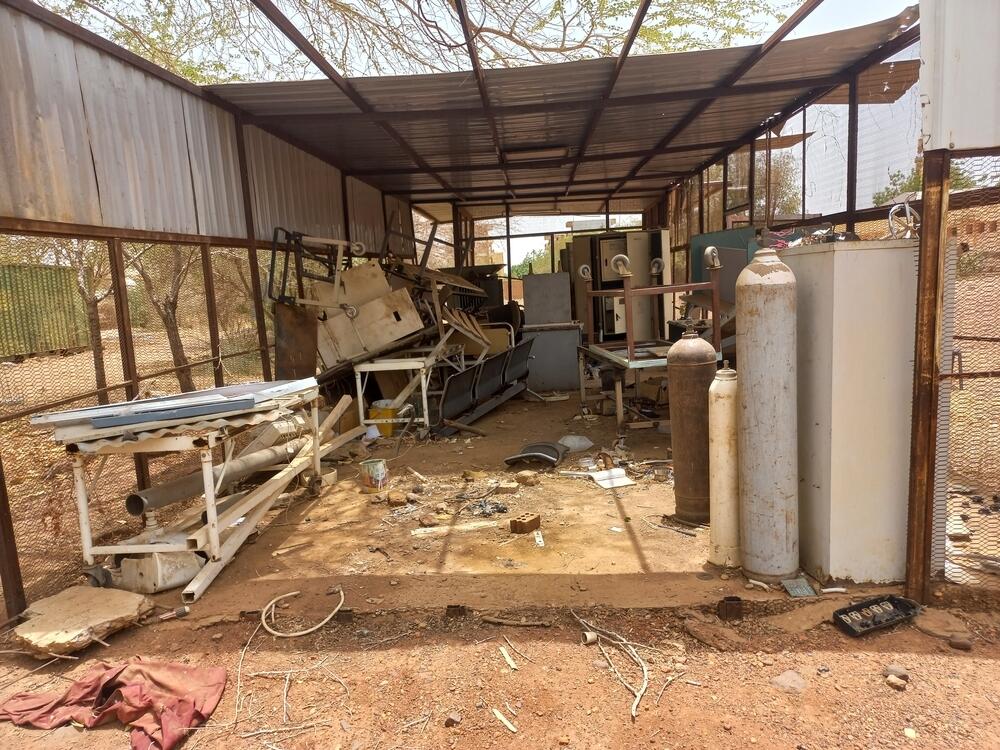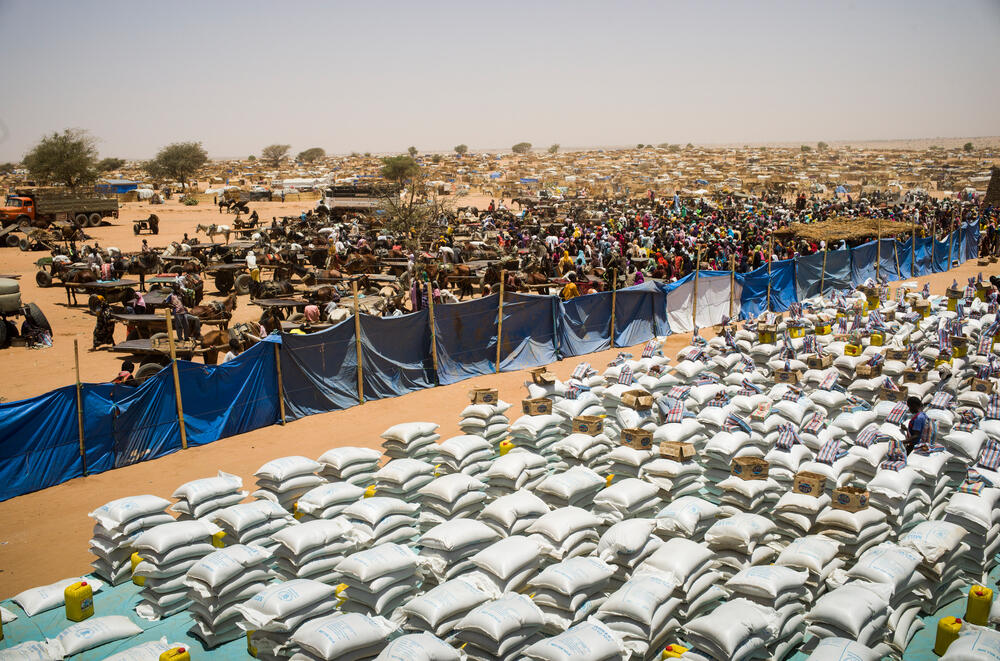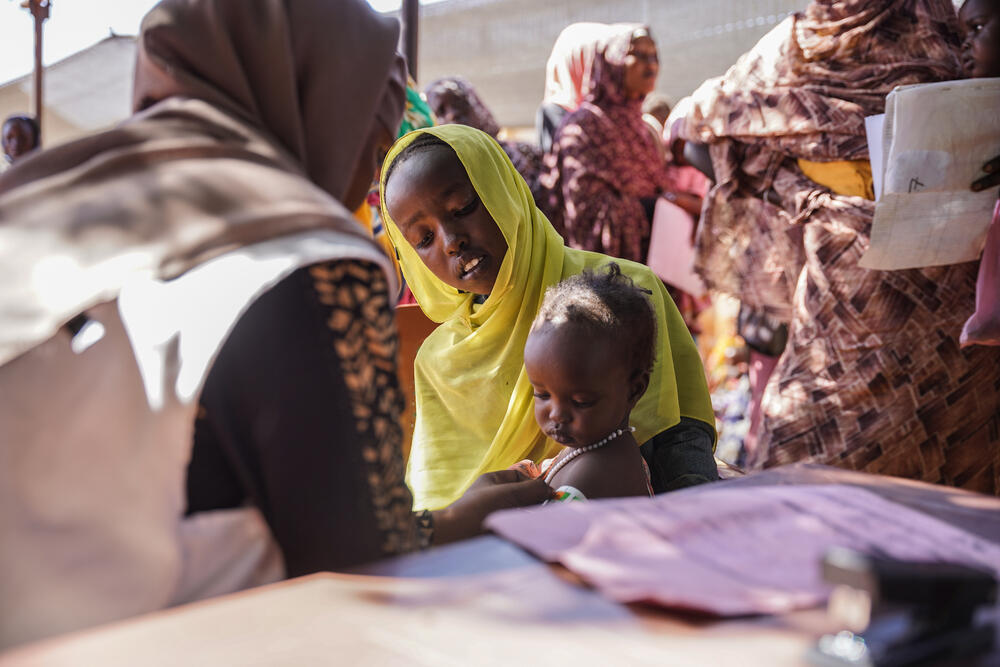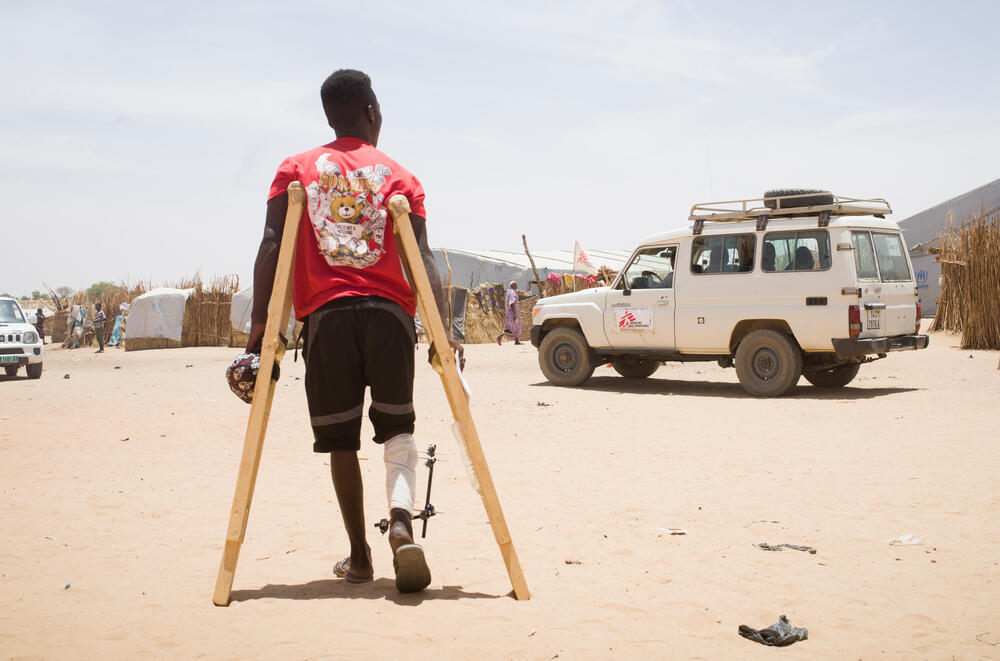This is the biggest humanitarian crisis on Earth
Why is no one talking about it?
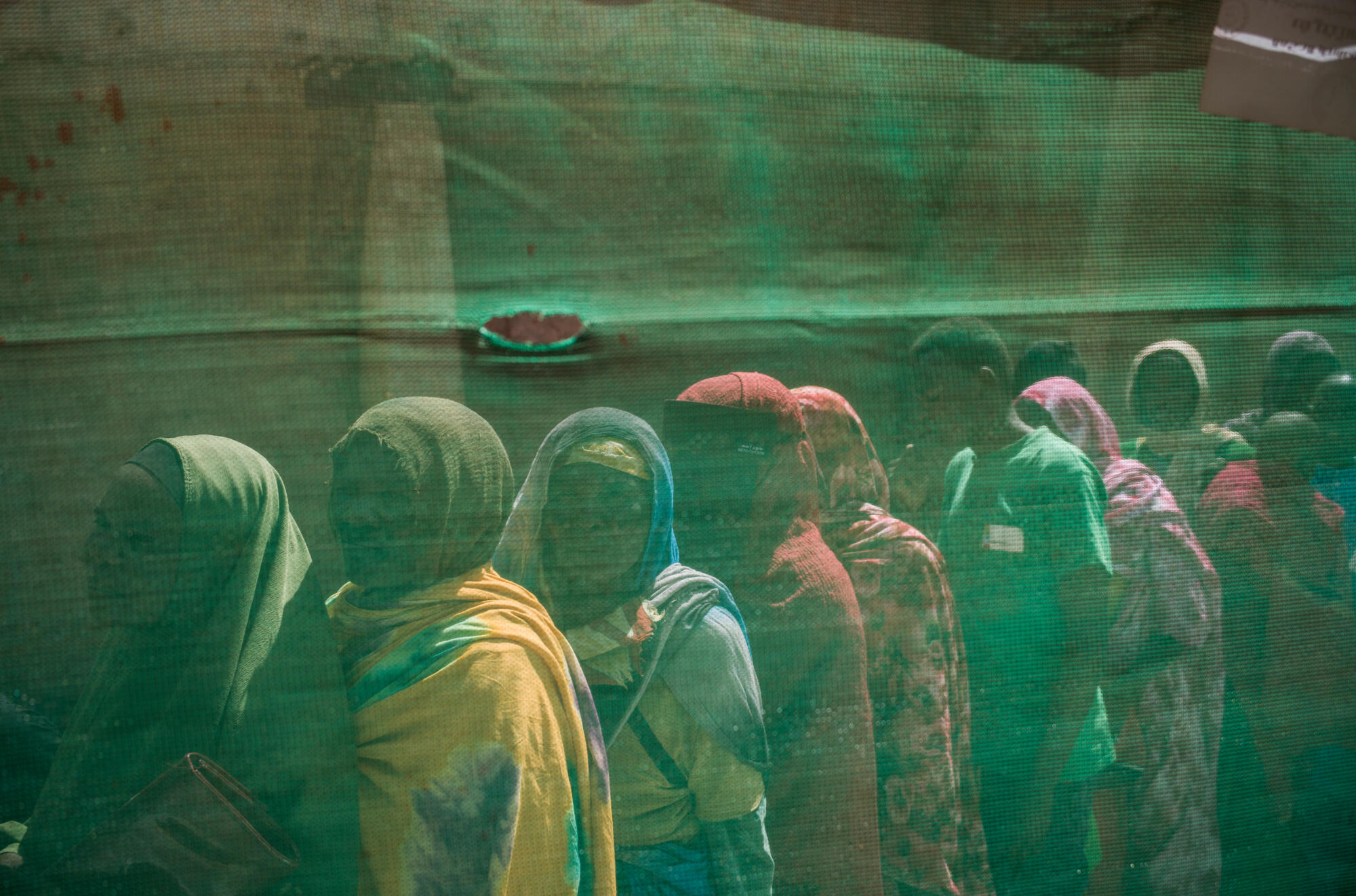
Underreported and even ignored, Sudan is facing a monumental humanitarian crisis.
A brutal civil war has forced more than 11 million people to flee their homes. Men, women and children are suffering massacres and violent injuries. And, according to the World Food Programme, over 25 million are now facing acute hunger.
Right now, this is the largest displacement crisis on the planet. One of the worst seen in decades.
And yet, no one is really talking about it.
Sudan rarely makes the headlines. Even aid agencies are barely responding.
For over a year, Médecins Sans Frontières / Doctors Without Borders (MSF) has been raising the alarm on this overlooked emergency while our teams work to treat people caught in the middle of it. In some places, we are the only ones there.
We owe it to Sudan to speak out.
Sudan is a vast and diverse country. It is home to over 48 million people speaking more than 115 languages and dialects in an area equal to France, Germany, Italy and Spain combined.
On Saturday 15 April 2023, the people of Sudan woke up to a civil war.
Intense gunfights, shelling and airstrikes had erupted around the capital Khartoum and would soon spread to other cities, especially in the western region known as Darfur.
This conflict didn’t come from nowhere. A military coup in 2021 led to an uneasy political and economic situation. Tensions grew between the Sudanese Armed Forces (SAF) and the paramilitary Rapid Support Forces (RSF) – a group that had previously operated on behalf of the government.
Since those first days, new regional militias have entered the conflict on both sides, with civilians frequently being targeted in acts of extreme violence, often because of their ethnicity.
Healthcare is under direct attack
Hospitals and healthcare staff have been routinely attacked in Sudan.
MSF alone has recorded at least 60 incidents of violence against our people, our vehicles and our buildings. The MSF-supported Al Nao Hospital has been shelled on three separate occasions, while an airstrike near the Babiker Nahar Paediatric Hospital killed two children in the intensive care unit after the roof collapsed.
In June 2024, the World Health Organization estimated that, at best, only 30 percent of healthcare facilities are still functioning in Sudan.
Humanitarian aid is being deliberately blocked
A staggering 25 million people are estimated to need humanitarian assistance in Sudan.
And, from the start of the war, MSF has been working with the Ministry of Health to treat some of this vast number of people who require urgent medical care.
However, this hasn’t stopped the Government of Sudan from repeatedly and deliberately obstructing humanitarian aid, especially to areas outside of SAF control. This is the weaponisation of aid, and it is costing lives.
From blockades that prevent emergency supplies crossing frontlines to the denial of travel permits for humanitarian workers, the consequences are clear and dangerous.
Medical supplies are running out
The obstruction of humanitarian aid means medical supplies are critically low. At times, this had made some life-saving care almost impossible.
In just one example, the MSF surgical team at Bashair Teaching Hospital in Khartoum had carried out almost 3,000 procedures – including war surgeries and emergency caesarean sections – when they were forced to suspend operations for more than three months as a military blockade exhausted their supplies.
Elsewhere, in RSF-controlled areas where different militias operate, healthcare facilities and warehouses have been regularly looted, leaving medical teams without essential medicines and equipment.
Medical care where it's needed most
Help us care for people caught in the world's worst healthcare crises.
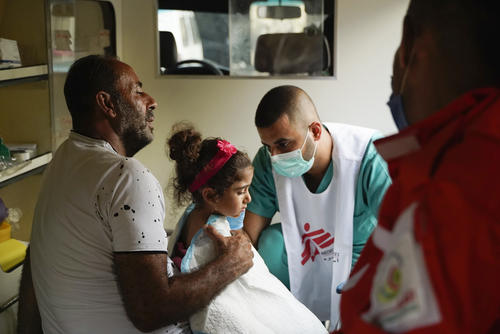
There is a catastrophic food crisis
The conflict has disrupted food supply across Sudan and people have been cut off from their jobs, meaning millions now face a new crisis: hunger.
At Zamzam – a vast camp in North Darfur where over 300,000 people are sheltering – our teams have witnessed the severe impact of this food insecurity.
In March and April, MSF found that almost a third of children here were suffering from malnutrition, as well as a third of pregnant and breastfeeding women. For both groups, this is double the ‘threshold’ rate considered an emergency. In response, we established a field hospital to provide urgent care.
However, we now fear the situation has deteriorated even further since a surge in heavy fighting began in May, around the nearby city of El Fasher.
Streams of people have fled towards the camp and it’s not known how many have arrived. Access to food has become even more challenging and MSF staff themselves have been displaced.
All of this makes it extremely difficult to get an accurate picture of what is unfolding inside Zamzam. However, it is likely to be alarming.
The crisis has spread
The crisis is not confined to Sudan. Millions of people have made the desperate decision to seek safety in neighbouring countries and become refugees.
In West Darfur, extreme violence in the city of El Geneina has driven an exodus of people over the nearby border with Chad where hundreds of thousands are now living in makeshift camps.
In response, MSF deployed a state-of-the-art inflatable hospital to help treat the war-wounded men, women and children arriving at Adre, a small town on the Chadian side of the border. In the early months of the conflict, we saw 15,000 arrivals in just four days. Over 900 were wounded.
However, with so few humanitarian organisations working in the area, the needs across the many camps are still shockingly high and the flow of new arrivals has been constant, forcing people to survive with scant supplies of food, water and shelter.
The UN reports that more than 600,000 people have fled to Chad. Around 730,000 people have also arrived at camps in South Sudan where our teams are reporting a spike in malnutrition.
Civilians are being targeted
As the first refugees crossed the Chadian border, the MSF team at Adre treated hundreds of people – including children – for gunshot wounds in the back, buttocks and head. They had been shot while running away.
This was just a hint of what was taking place inside Darfur.
An MSF team has since collected testimonies from more than 1,500 people across three refugee camps. Many shared how they had been attacked due to their Masalit ethnicity, with men being systematically targeted.
The accounts paint a picture of violence, looting, the burning of homes, sexual violence and massacres, rooted in political and economic rivalries along ethnic lines.
Almost 20 years after the war in Darfur and a campaign of ethnic cleansing, there are now dangerous echoes in this new crisis. MSF has shared our evidence at the highest levels and will continue to raise the alarm about the situation in front of us.
Sudan has been abandoned
In the middle of devastating violence and suffering, millions of people have been abandoned. Including by the UN.
In hard-hit areas of Sudan like Darfur, Khartoum or Al Jazirah, MSF is one of just a few international organisations still running hospitals and healthcare. In some places, we are the only ones there. MSF has called the situation “a humanitarian void”.
This emergency is far bigger than our capacity to respond. We cannot do it alone.
Many international organisations were present in Sudan before the war, but they left and have failed to return. At the same time, Sudanese authorities have imposed increasing restrictions.
MSF has repeatedly called on the UN to step up.
The UN and its partners have held conferences – most recently in Paris on 15 April, the first anniversary of the crisis – but have failed to deliver on plans.
The organisation has self-imposed restrictions on accessing parts of Sudan and has not intervened in crucial opportunities that could have opened up humanitarian access.
MSF calls on the UN to be bold in the face of an enormous crisis, to focus on clear results and to actively contribute to the massively scaled-up humanitarian response that is urgently needed.
Sudan requires action.
We see significant malnutrition and increasing food insecurity in the patients coming to our clinics in Nyala, South Darfur, Sudan.
— MSF UK (@MSF_uk) July 30, 2024
The people of South Darfur need your help, @WFP, where are you? #TalkAboutSudan pic.twitter.com/GP7vlIn6q4
If you are reading this, you can help.
Please talk about Sudan, share on social media or donate to organisations that are helping.
Read more > A war on people: New MSF report reveals catastrophic violence in Sudan
MSF and the crisis in Sudan
On Saturday 15 April, intense fighting broke out across Sudan with a wave of gunfire, shelling and airstrikes.
The violence between the Sudanese Armed Forces (SAF) and the Rapid Support Forces (RSF) has trapped millions of people in the middle of an unexpected conflict. Many have been forced to flee their homes while access to essential services such as healthcare has become increasingly difficult.
Médecins Sans Frontières / Doctors Without Borders (MSF) teams already working in Sudan have been responding to the crisis since its first moments.
